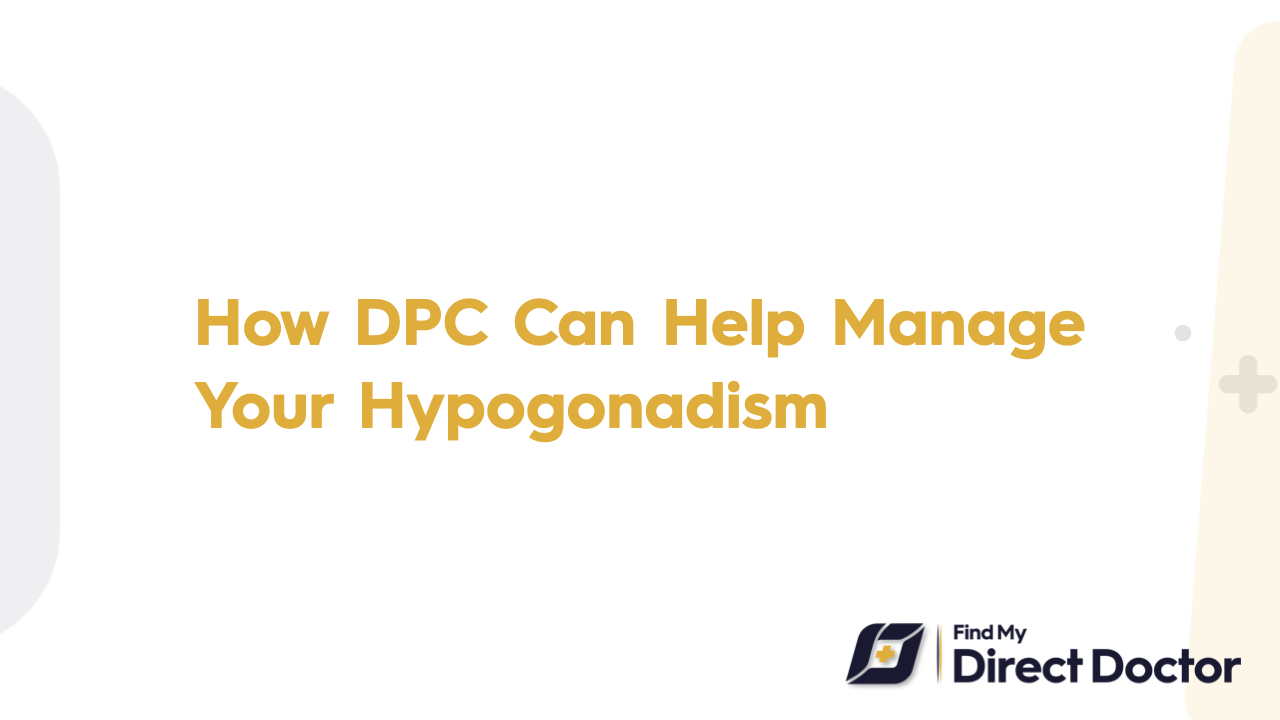



A disorder known as hypogonadism occurs when the body produces insufficient amounts of sex hormones, such as estrogen in women and testosterone in males. It may be brought on by issues with the pituitary gland, which regulates the production of hormones, the ovaries, or the testes. Depending on the reason, hypogonadism symptoms might vary, but they frequently include depression, decreased libido, exhaustion, and trouble focusing. Men with hypogonadism may experience infertility, decreased muscular mass, and erectile problems. Vaginal dryness, hot flashes, and irregular periods are all possible for women.

Increased body fat and decreased bone density are two further changes in body composition that both men and women with hypogonadism may experience, which raises their risk of osteoporosis.
For the management of hypogonadism, Direct Primary Care (DPC) provides a successful, patient-centered strategy. Patients can easily contact their healthcare provider with DPC, which enables prompt hormone level monitoring, diagnosis, and treatment. If hormone levels are low, your DPC provider can perform blood tests to identify the cause and provide treatment alternatives, such as lifestyle modifications or hormone replacement therapy.
Providers can create a customized care plan that meets your unique needs because DPC places a strong emphasis on long-term relationships between patients and physicians. Frequent check-ups guarantee that treatment is working and allow for modifications to maximize outcomes.
For hypogonadism patients, DPC offers substantial advantages. One of the main benefits is the continuity of care, which gives you direct access to medical professionals who are aware of your needs and medical history. Longer visits and a more comprehensive assessment of your condition are provided by DPC because it does not depend on a large patient volume.
Any symptoms or changes in your health can be swiftly handled with this degree of individualized care. Better results and a more comprehensive approach to treatment are also guaranteed by the more adaptable and proactive management of hypogonadism that DPC providers may provide.
The foundation of DPC's strategy for treating hypogonadism is individualized care. Together, you and your healthcare professional develop a treatment plan that meets your objectives, medical requirements, and way of life. Your DPC provider makes sure you are supported during your treatment process, whether that is diet, exercise, or hormone replacement therapy.
Additionally, DPC provides continuous monitoring to assess your progress and modify treatments as needed. With a focus on preventative care and more frequent check-ins, this paradigm guarantees the best possible management of hypogonadism and enables early detection of any problems.
Previous Post